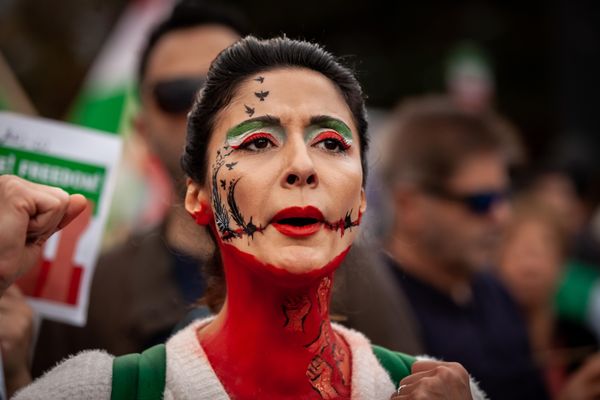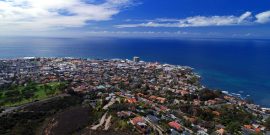Ainda em revisão, capa a escolher:
Relações internacionais do Brasil:
história e historiografia da diplomacia brasileira
Paulo Roberto de Almeida
Índice
Prefácio
1. Relações internacionais e política externa do Brasil: visão geral, 7
A era do Barão, 1902-1912
A República dos bacharéis, 1912-1930
Crise e fechamento internacional, 1930-1945
Uma política exterior tradicional, 1945-1960
A política externa independente, 1961-1964
A volta ao alinhamento, 1964-1967
Revisão ideológica e busca de autonomia tecnológica, 1967-1985
Redefinição das prioridades e afirmação da vocação regional, 1985-2000
2. Evolução histórica da política externa brasileira, 20
Diferentes abordagens em torno da política externa brasileira
Uma periodização em contínuos ajustes
Grandes etapas da diplomacia brasileira em sua trajetória independente
A diplomacia brasileira e a política externa partidária do lulopetismo
As instituições republicanas e a ferramenta diplomática
As grandes etapas da política externa desde 1945 (listagem esquemática)
3. Historiografia da independência: síntese bibliográfica, 37
Seleção dos trabalhos para a construção da história da independência
Qual historiografia, qual independência?
A historiografia da independência: seus principais historiadores
As fontes, os fatos e a historiografia da Independência
Alguns historiadores estrangeiros dos “sucessos” da independência
O patrono da historiografia, Varnhagen, e seu crítico, Oliveira Lima
4. A diplomacia brasileira da independência: heranças e permanências, 55
A diplomacia e a política externa na independência do Brasil
O primeiro registro da autonomia: o Arquivo Diplomático da Independência
A outra independência: uma história alternativa da construção do Estado
A Bacia do Prata e a Cisplatina: a primeira guerra (herdada de Portugal)
A lamentável diplomacia do tráfico escravo: defendendo o indefensável
A diplomacia brasileira na construção do Estado
5. A diplomacia econômica do Brasil em perspectiva histórica, 81
Aspectos metodológicos da análise da diplomacia econômica brasileira
Estrutura e contexto da diplomacia econômica no Brasil
A diplomacia econômica brasileira no século XIX
Uma diplomacia “fora do lugar”?
A diplomacia econômica brasileira no século XX
Velhas questões, novos desafios: a diplomacia econômica ao início do século XXI
6. A emergência do Brasil para a diplomacia multilateral: da Haia a Paris, 98
Os conceitos de diplomacia mundial, internacional, global ou multilateral
Como o Brasil emergiu para a diplomacia multilateral?
A passagem do Brasil da política regional para a política internacional
O Brasil na conferência da paz da Haia (1907)
Rui Barbosa defende a neutralidade da Bélgica na Grande Guerra (1916)
O Brasil nas negociações de paz de Paris (1919)
7. Relações econômicas internacionais desde 1944, 116
O Brasil no sistema econômico multilateral do pós-guerra
A ordem econômica internacional do pós-guerra e a economia brasileira
O multilateralismo econômico do pós-guerra e o Brasil
Brasil: cronologia sumária do multilateralismo econômico, 1944-2022
Vetores das relações econômicas internacionais do Brasil, 1944-2022
8. Finanças internacionais do Brasil: perspectiva de meio século, 132
Meio século de história financeira do Brasil
Multiplicidade cambial e estrangulamento financeiro, 1954-1964
Estabilização econômica, indexação e abertura financeira, 1964-1973
A desordem monetária internacional e o desequilíbrio financeiro, 1973-1982
Crise e castigo numa era de transformações financeiras, 1982-1987
Ensaios de estabilização na era da globalização financeira, 1987-1994
De novo no turbilhão financeiro internacional, 1994-2004
A inserção financeira internacional do Brasil: perspectiva de meio século
9. As relações internacionais do Brasil na era militar, 1964-1985, 181
Visão geral da diplomacia e das políticas externas do regime militar
A diplomacia dos círculos concêntricos: governo Castello Branco, 1964-1967
A diplomacia da prosperidade: governo Costa e Silva, 1967-1969
A diplomacia do interesse nacional: governo Garrastazu Médici, 1969-1974
A diplomacia do pragmatismo responsável: dupla Geisel-Silveira, 1974-1979
A diplomacia do universalismo: governo Figueiredo, 1979-1985
Balanço global das diplomacias do regime militar, 1964-1985
10. Da normalidade à esquizofrenia na diplomacia brasileira, 202
Diplomacia e política externa de Estados soberanos, em condições normais
Padrões tradicionais da diplomacia brasileira, em tempos normais
Tempos anormais: sem padrões e sem qualquer programa
Como a anormalidade se transformou em esquizofrenia diplomática
A esquizofrenia se transforma em isolamento internacional
A restauração da política externa e da diplomacia segundo ex-chanceleres
11. A política externa do governo Bolsonaro, 2019-2022, 232
No começo era o globalismo, o pavor da nova direita
Trump, o salvador do Ocidente, guia e ídolo de Bolsonaro
China ou o tecnototalitarismo, estimado destruir a democracia no Brasil
A União Europeia e o seu insistente incômodo na questão do meio ambiente
O Mercosul e a América do Sul: as oportunidades perdidas
De repente, a pandemia revela o negacionismo do presidente
O isolamento internacional do Brasil: uma novidade desde a ditadura militar
A Ucrânia e a disjunção entre a política presidencial e o Itamaraty
Nunca antes visto na história da diplomacia brasileira: um primeiro balanço
12. O pensamento brasileiro sobre as relações internacionais do Brasil, 245
Existe um “pensamento brasileiro” em relações internacionais?
Panorama do pensamento internacional no Brasil até o regime militar
Desenvolvimento do pensamento brasileiro na redemocratização
Os grandes eixos da pesquisa e das atividades docentes no final do século XX
A diplomacia do Sul Global e sua influência na produção acadêmica
Ruptura política a partir de 2016-2018: desaparecimento do pensamento?
Tendências atuais e perspectivas para o pensamento internacional do Brasil
13. Rupturas e continuidades na política externa brasileira, 276
A construção de uma política externa autônoma sob o regime militar
Poucas descontinuidades na Nova República
Pequena ruptura da era Lula: engajamento no combate à fome e à pobreza
A caminho da grande ruptura: desafeição ao PT e ascensão da extrema-direita
Uma nova “ruptura diplomática” em 2023?
Indicações bibliográficas, 286
Nota sobre o autor, 291
Livros publicados por Paulo Roberto de Almeida, 292











